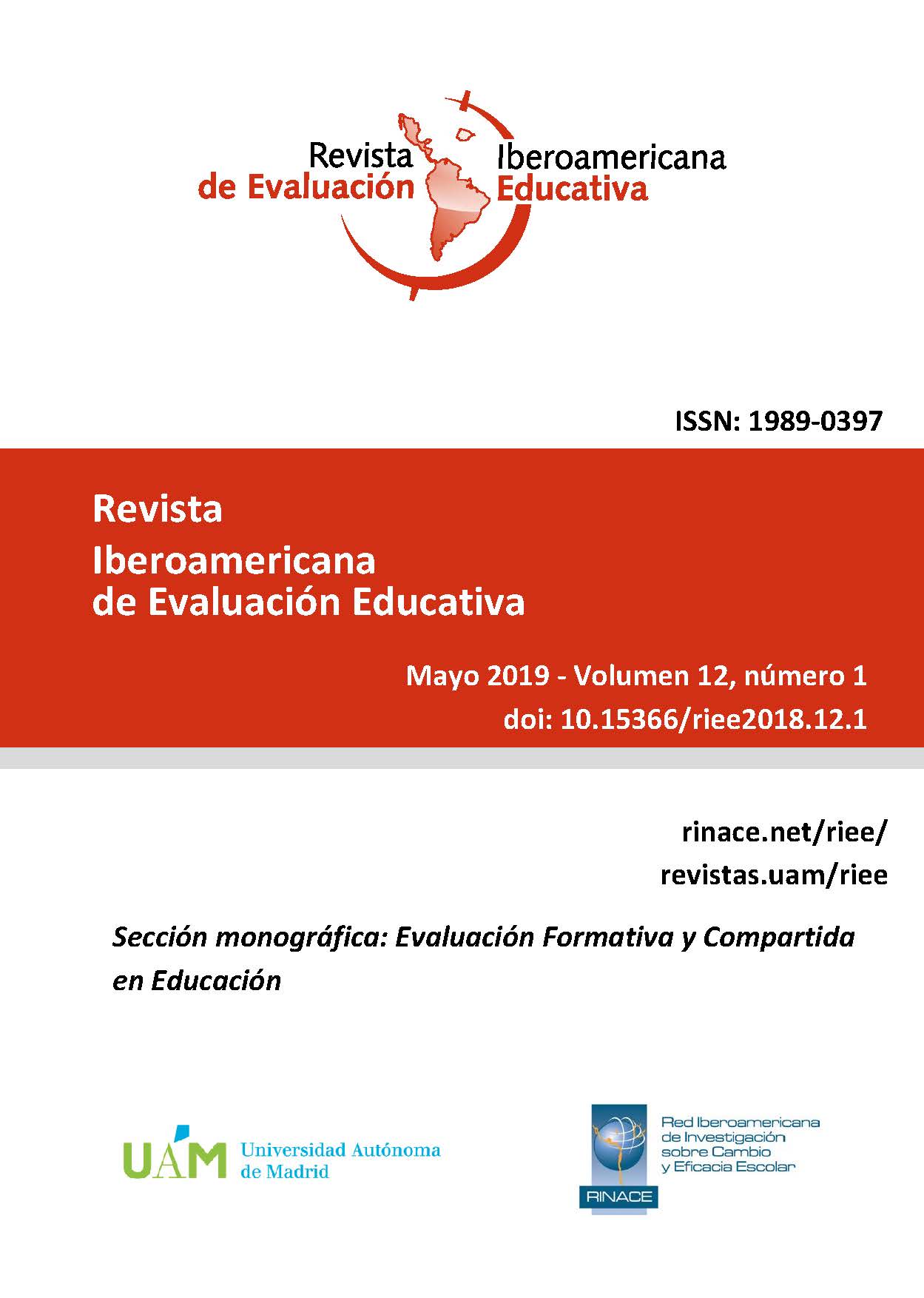Formative Assesment in the Classroom: Discursive Analysis of the Feedback Activity in Supervised Practice of Undergraduate Educational Psychologists
Keywords:
Formative assessment, Educational practice, Supervision, Feedback, Discourse analysis, Undergraduate educational psychologists.Abstract
This is a discursive study of the formative assessments as feedback activities that take place as part of the Supervised Practice of undergraduate educational psychologists at a Mexican public university (UNAM). The formative practice of undergraduate psychologists has been recognized as very important, however there are few studies that show how are they evaluated as a formative practice at the classroom. Analyze the processes of interactional work involved in a feedback activity, when students become evaluators of competence or psycho-educational skills, in modalities of formative assessment such as (a) co-evaluation, (b) peer evaluation and (c) self-evaluation, is this work purpose. After the first psycho-educative session at the Gesell camera several classroom interactional extracts were analysed, where the participants (the teacher, an intern and undergraduates) evaluate the professional competence of an undergraduate student that work as the psychologist of a particular case. A discursive approach informed by the ethnometodology and the conversation analysis perspective orients the study in order to exam, turn by turn, the formative assessments of the undergraduate psychologists work and the public positions about her performance. The analysis results show the collective construction of the formative assessments of the supervised practice realised by a psychologist student. This psychologist together with a passant are in charge of the case and the rest of the students observe and participate in the assessment of the supervised practice. Through these collective discursive processes, all the participants have the opportunity to improve their professional performance. This results show the important contribution of this kind of analysis in order to describe and recognize the formative contribution of the supervised practices evaluated in real settings.
Downloads
References
Buenrostro, A. (2016). Programa de apoyo al aprendizaje escolar: Docencia, servicio e investigación. Revista Electrónica de Psicología de la FES-Zaragoza-UNAM, 6(11), 1-14.
Candela, A. (2018). Peer organized study groups: Succesful learning interactions in Mexican undergraduate physics. Learning, Culture and Social Interaction, 19, 11-21.
Clift, R. (2006). Indexing stance: Reported speech as an interactional evidential. Journal of Socioliinguistics, 10(5), 569-595.
Coll, C. (1989). Psicología académica y psicología profesional en el campo de la educación. Anuario de Psicología, 41, 49-73.
Díaz, F. (2006). Enseñanza situada: Vínculo entre la escuela y la vida. Ciudad de México: McGraw-Hill Interamericana.
Díaz, F., Hernández, G. Rigo, M., Saad, E. y Delgado, G. (2006). Retos actuales en la formación y práctica profesional del psicólogo educativo. Revista de la Educación Superior, XXXV(1), 11-24.
Glenn, P. (2003). Laughter in interaction. Cambridge: Cambridge University Press.
Guzmán, J. (2005). La formación profesional del psicólogo educativo en México. Sinéctica, 25, 3-13.
Heath, C., Hindmarsh, J. y Luff, P. (2010). Video in qualitative research: Analysing social interaction in everyday life. Londres: Sage.
Heritage, J. y Raymond, G. (2005). The Terms of Agreement: Indexing Epistemic Authority and Subordination in Assessment Sequences. Social Psychology Quarterly, 68, 15-38.
Hernández, G. (2007). Una reflexión crítica sobre el devenir de la psicología de la educación en México. Perfiles Educativos, XXIX(117), 7-40.
Lerner, G., Bolden, G., Hepburn, A. y Mandelbaum, J. (2012). Reference recalibration repairs: Adjusting the precision of formulations for the task at hand. Research on Language & Social Interaction, 45(2), 191-212.
Macbeth, D. (2003). Hugh Mehan’s learning lessons reconsidered: On the differences between the naturalistic and critical analysis of classroom discourse. American Educational Research Journal, 40(1), 239-280.
Martínez, F. y Mercado, A. (2015). Estudios sobre prácticas de evaluación en el aula: Revisión de la literatura. Revista Electrónica de Investigación Educativa, 17(1), 17-32.
Potter, J. (2012). Discourse analysis and discursive psychology. En H. Cooper (Ed.), APA Handbook of research methods in psychology: Vol. 2. Quantitative, qualitative, neuropsychological, and biological (pp. 111-130). Washington, DC: American Psychological Association Press.
Ravela, P., Picaroni, B. y Loureiro, G. (2017). ¿Cómo mejorar la evaluación en el aula?: Reflexiones y propuestas de trabajo para docentes. Ciudad de México: Instituto Nacional para la Evaluación de la Educación.
Raymond, G. y Heritage, J. (2006). The epistemics of social relations: Owning grandchildren. Language in Society, 35, 677-705.
Rodríguez, F. y Seda, I. (2013). El papel de la participación de estudiantes de Psicología en escenarios de práctica en el desarrollo de su identidad profesional. Perfiles Educativos, 35, 82-99.
Schegloff, E. (1996). Some practices for referring to persons in talk-in-interaction: A partial sketch of a systematics. En B. Fox (Ed.), Studies in anaphora (pp. 437-485). Amsterdam: John Benjamins Publishing Co.
Stivers, T., Mondada, L. y Steensig, J. (2011). Knowledge, morality and affiliation in social interaction. En T. Stivers, L. Mondada y J. Steensig (Eds.), The morality of knowledge in conversation (pp. 3-24). Cambridge: Cambridge University Press.
Zorrilla, M. (2017). Prólogo: Innovar desde la práctica para mejorar la evaluación en el aula. En P. Ravela, B. Picaroni y G. Loureiro, ¿Cómo mejorar la evaluación en el aula?: Reflexiones y propuestas de trabajo para docentes (pp. 11-20). Ciudad de México: Instituto Nacional para la Evaluación de la Educación.
